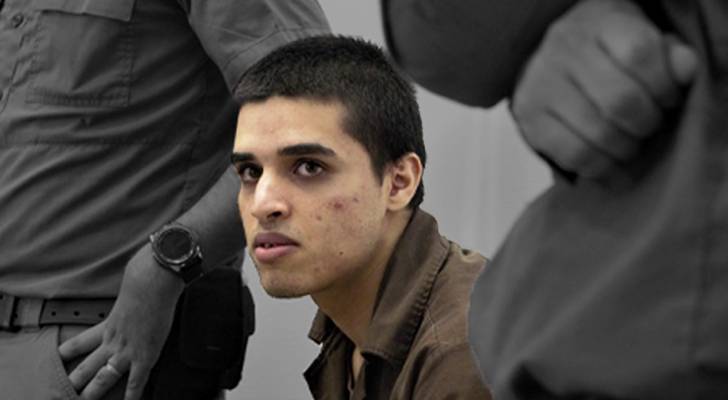Ahmad Manasra, a 22 year old Palestinian resident of East Jerusalem, was arrested in 2015 at the age of 13 by the Israeli Occupation.
Ahmad Manasra, detained at 13 by Israeli Occupation, to be freed April 11
Ahmad Manasra, the Palestinian detainee who became widely known for uttering “I don’t remember” during a harrowing 'Israeli' interrogation at age 13, is set to complete his 9.5-year prison sentence this Friday, April 11.
Manasra was arrested in 2015 following an alleged stabbing attack in Jerusalem. Though only 13 at the time, he was tried and sentenced as an adult.
Since then, his case has drawn international attention, especially as evidence mounted of severe mistreatment during his detention and interrogation, including psychological torture and prolonged solitary confinement.
In June 2022, the 'Israeli' Prison Service's Parole Committee designated Manasra’s case as “terrorism,” a classification that blocked any chance for early release under 'Israel’s' 2001 Parole Law. His legal team condemned the move as a grave breach of international law, particularly laws protecting the rights of minors.
Manasra, now 20, has suffered significant mental health deterioration during his imprisonment. He has been diagnosed with schizophrenia and has exhibited signs of psychotic delusions, suicidal ideation, and general psychological collapse.
His lawyer, Khaled al-Zabarqa, described a June 2022 visit where Manasra was non-responsive and bore visible self-inflicted wounds on his arms. Due to his worsening condition, he was transferred to the Ramleh prison hospital and has remained under medical watch.
Despite his fragile state, 'Israeli' courts repeatedly denied appeals for early release, drawing criticism from human rights groups worldwide. Amnesty International called for his immediate release, highlighting the abuse he endured: prolonged solitary confinement, coercive interrogations without a lawyer, and a denial of fair trial standards.
“Ahmad Manasra has been subjected to a series of injustices by the 'Israeli' authorities… He should have been released a long time ago, yet he remains in unnecessary suffering in 'Israeli' prisons,” said Heba Morayef, Amnesty’s Regional Director for the Middle East and North Africa.
As his sentence nears its end, questions remain over his recovery and reintegration after nearly a decade of incarceration that began in childhood. His case continues to symbolize, for many, the plight of Palestinian minors in Israeli detention.




